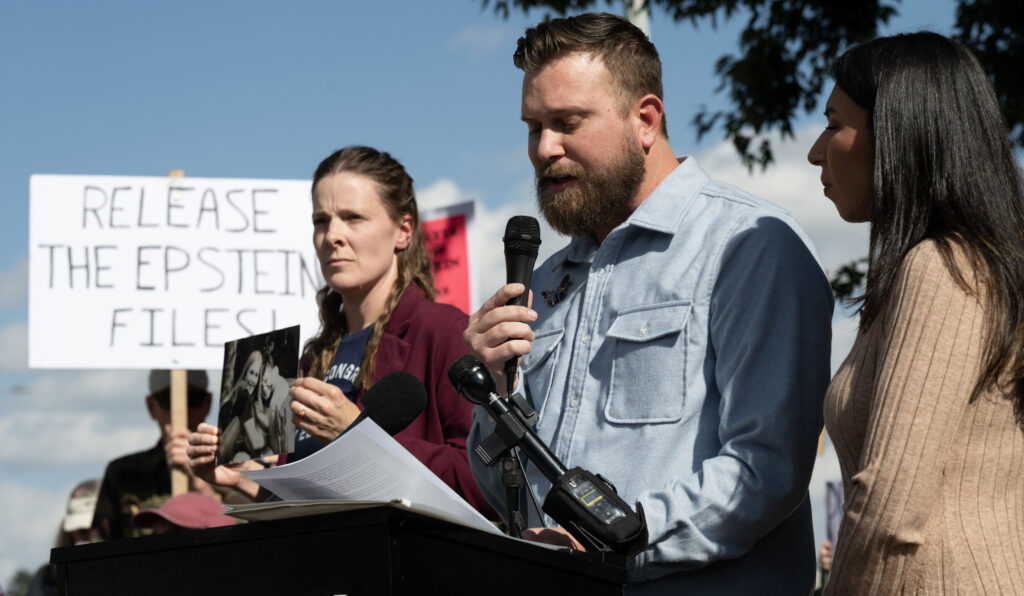Colorado’s $44 billion spending plan heads back to budget panel for final review
The Colorado state government’s $43.9 billion spending plan and its accompanying measures are now headed back to the legislature’s budget panel, which will resolve differences between the House and Senate versions.
The spending plan stands at $3.5 billion more than the current’s year budget plan. Lawmakers’ biggest hurdle is closing a $1.2 billion general fund shortfall, driven by higher-than-expected Medicaid costs and a structural deficit.
On Thursday, the House gave final approval to the main appropriations bill and 63 “orbitals” — bills that change state law to balance the budget.
Senate Bill 206 passed on a 44-21 vote, with JBC member Rep. Rick Taggart, R-Grand Junction, the only Republican to support it, along with the House Democrats.
One bill failed: After a lengthy debate, the House rejected Senate Bill 251, which would have repealed a state kidney disease education task force 15 months early at an annual cost of about $87,000 in general funds.
The task force was created under legislation in 2021 but is set to repeal on Sept. 1, 2026. The Department of Public Health & Environment supported the repeal, noting that it is awaiting a final report from the task force and that closing it a year early would negate the need for a sunset review, saving money.
Rep. Sheila Lieder, D-Littleton, a legislative member of the task force, voted against the repeal.
“We need to maintain the funding … to find solutions for early intervention,” she told the House.
The Joint Budget Committee will act as a conference committee on the spending plan. That means each member will represent the views and votes of their caucuses.
Why that matters is that the amendments approved by the House and Senate will now undergo a review. Those that receive approval in both chambers will likely become part of the final version.
A handful of amendments won both chambers’ support:
• An amendment to fund the National Cybersecurity Center at the University of Colorado, Colorado Springs at a cost of $436,616 in general funds for the program. Lawmakers decided to take those dollars from a recreation program in the Department of Corrections.
• An amendment to restore provider rates for occupational, physical, and speech therapists under the Department of Health Care Policy and Financing at a cost of $1.95 million in general funds, $455,000 in cash funds, and $4.1 million in federal funds. No source was cited for the general funds, so the JBC must find a way to pay for it.
• An amendment to add $5.6 million in general funds and $5.5 million in matching federal funds to the primary care fund in the Department of Health Care Policy and Financing. That fund supports community health centers and other safety net clinics. Funds are awarded based on the number of indigent patients the agency serves. The general fund portion is paid for with $2.5 million from the excess General Fund reserve and $3.1 million from the controlled maintenance trust fund.
• An amendment to shift $40,676 in general fund dollars from the Colorado Equity Office to the “Address Confidentiality Program,” both in the Department of Personnel and Administration, and adding one full-time employee. The address program provides survivors of domestic violence, sexual offenses, or stalking with a legal substitute address for interacting with all state and local government agencies.
• An amendment to add $959,310 in cash fund spending authority to the Department of Public Health and Environment for its “environmental justice” program.
One amendment that won approval from the Senate but lost in a close vote in the House allocated $1.2 million in general fund for the Arkansas Valley Regional Medical Center in La Junta to pay for obstetrics services. The facility announced it would end those services in April, leaving southeastern Colorado residents with only two options for maternity care: a 35-mile drive to Lamar or a two-hour trip to Pueblo.
On Wednesday, the House rejected the amendment with a 29-33 vote.
The JBC is also expected to seek permission to go beyond the scope of differences between the two versions.
The 2025-26 budget, at $43.9 billion, is about $3.5 billion more than the 2024-25 budget. The largest portion of that increase is in cash funds. General Fund spending increased by over $500 million from last year’s budget.
The clock is now ticking for completing the budget and getting it to the governor’s desk. The deadline for adopting the conference committee report is April 18. Once sent to the governor, he has 10 days to act. The budget bill is the only measure in which he has the authority to veto line items.
Governors traditionally don’t veto line items; they instead reject footnotes and headnotes, which are directions from the General Assembly.
Vetoes are generally over separation of powers issues, but even a veto often comes with a directive to the agency to comply with the directions anyway.
Why this matters is that a controversial footnote in this year’s budget sets strict guidelines to address criticisms directed at the state’s wolf reintroduction program. The footnote, crafted by JBC Chair Sen. Jeff Bridges, D-Greenwood Village, and Sen. Dylan Roberts, D-Frisco, tells Colorado Parks and Wildlife to implement seven non-lethal management techniques sought in a petition submitted last year from 22 agricultural organizations and backed by Colorado Counties, Inc.
The CPW Commission rejected the petition in January, although the agency claimed it was implementing those techniques. The agency also released another 15 wolves from British Columbia and five from the Copper Creek pack in Eagle and Pitkin counties without having many of those techniques ready for ranchers in those counties. As the calving season ramps up, wolves are killing livestock in those counties.
Roberts warned the administration in a speech on the Senate floor last week that, if it fails to complete that work, funding for the program could come to a halt.












